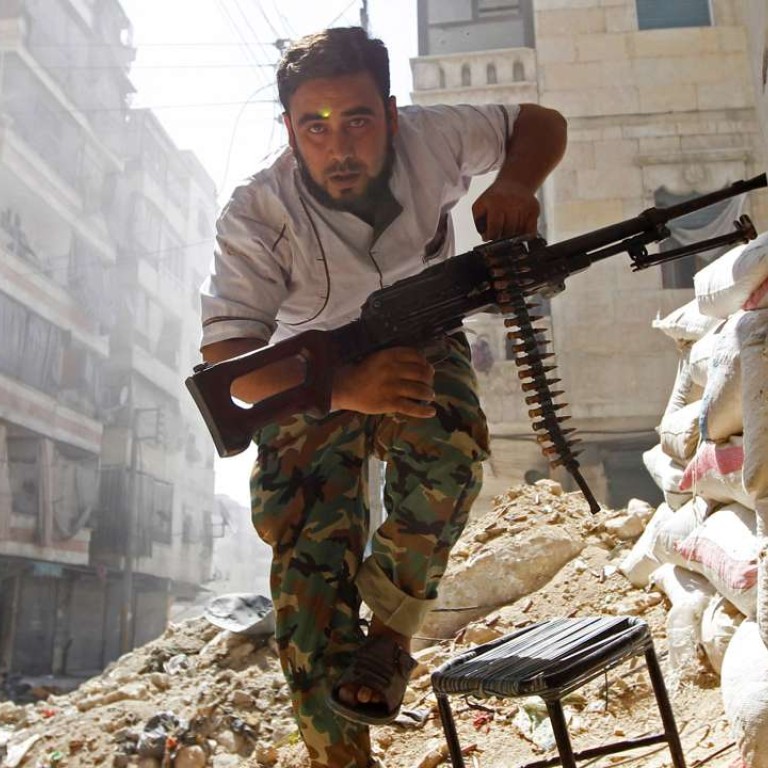
Deadly clashes hit Aleppo as evacuation deal on hold
Deadly clashes erupted in Syria’s Aleppo on Wednesday as a deal for the evacuation of rebel areas was put on hold, leaving thousands of cold and hungry civilians uncertain of their future.
The situation on the ground is very fragile and complicated
Entire families had gathered in the streets before dawn hoping to leave the ravaged city after an agreement announced the night before to evacuate civilians and rebels.
The first departures had been expected around 5am but there was no movement, and a few hours later, fierce fighting shook the city.
But it appeared increasingly fragile by Wednesday afternoon as the government and the rebels, as well as their foreign allies, traded accusations. Turkish President Recep Tayyip Erdogan said he would speak with Russian counterpart Vladimir Putin later in bid to rescue the deal.
“The situation on the ground is very fragile and complicated,” he said.
After hours of quiet, government air strikes and heavy tank fire resumed in the last pocket of rebel-held territory in east Aleppo, an AFP correspondent reported. Terrified residents ran through the streets in a fruitless bid to find adequate shelter, he said.
The Syrian Observatory for Human Rights reported “very intense clashes on every front line” and said two people had been killed in rebel-held areas. State television said rebel rocket fire on government-controlled areas had also resumed, killing at least seven people.

Moscow, a staunch ally of President Bashar al-Assad, said Damascus resumed its assault on Aleppo after rebels violated the ceasefire. Foreign Minister Sergei Lavrov said Moscow expected rebel resistance in the city to end in the next “two to three days”.
Rebels and a source close to the regime told AFP that the evacuation had been suspended after objections from the Syrian government. The source said Damascus had objected to the number of people leaving, claiming rebels had sought to raise it from 2,000 to 10,000.
But Yasser al-Youssef, a political official from the Nureddin al-Zinki rebel group, said the regime and its ally Iran were trying to add “new conditions” to the agreement.

“They want to link this deal to other issues, including the areas of Fuaa and Kafraya,” he added, referring to two government-held Shiite-majority villages in northwestern Syria that are under rebel siege. Turkey too accused Assad’s regime and its supporters of blocking the deal.
Before the fighting resumed, AFP’s correspondent saw crowds of civilians gathered in the streets of rebel areas from the early hours, some clutching bags of belongings, to await evacuation.
Some had slept in the open, despite the cold and a fierce storm that brought heavy rain and high winds. Many were hungry, after weeks without regular meals because of dwindling food supplies caused by the army’s siege.

The evacuation deal was announced a month into an army operation that has seen the government take more than 90 per cent of east Aleppo, held by rebels since 2012.
It called for civilians and fighters to leave Aleppo for opposition territory elsewhere in northern Syria.
Turkey said those leaving would be taken to Idlib province, which is controlled by a powerful rebel alliance that includes al-Qaeda’s former affiliate Fateh al-Sham Front.
The agreement came amid mounting international concern about the plight of civilians in the city, and as the UN said it had reports of atrocities being committed by advancing government forces.

The UN has expressed concern over allegations that men have gone missing after crossing to government areas, and on Tuesday said it had credible reports of summary executions by pro-regime fighters.
UN rights office spokesman Rupert Colville described reports of at least 82 civilians, including 11 women and 13 children, being executed in recent days. He said pro-government fighters had reportedly entered homes and killed those inside, and “caught and killed on the spot” fleeing civilians.

Aleppo, a cultural and economic hub second only to Damascus in importance, had been split between a rebel-controlled east and government-held west since 2012. It was unclear how many civilians remained in rebel territory, after an estimated 130,000 fled to other parts of Aleppo during the government advance.
The assault has been accompanied by heavy air and artillery bombardment and more than 460 civilians have been killed in east Aleppo since it began in mid-November, according to the Observatory, a Britain-based monitoring group. Another 130 have been killed by rebel rocket fire on western districts, it says. More than 310,000 people have been killed since the Syrian conflict began, and over half the population has been displaced, with millions becoming refugees.

.png?itok=arIb17P0)